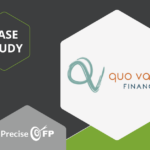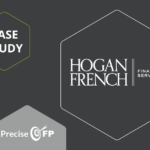Navigating the intricate world of compliance might sometimes appear as though it resides in an ivory tower, detached from the daily hustle and bustle of financial advisory. However, your professional credentials and the very core of your practice depend on your ability to adhere to the rules set forth. Consider this: in the event of an audit, the right technology coupled with a precise demonstration of compliance can transform what might have been a two-week ordeal into a mere two-day endeavor.
So, in a landscape where the rules are in constant flux, how do you stay ahead of the game?
This is the question that financial advisors grapple with as compliance regulations undergo perpetual shifts. The challenge is multifaceted: How do you maintain profitability and compliance while simultaneously adapting to ever-evolving regulations? How do you uphold a client experience that fosters trust, safeguards investments, streamlines audits, and prevents penalties stemming from non-compliance?
The reality is that compliance regulations are not only changing but becoming more stringent, with fees on the rise. In fact, the SEC reported a 7% increase in enforcement actions in 2021, underscoring the heightened importance for advisors to remain vigilant in keeping abreast of these regulatory transformations.
Yet, staying updated can seem like an additional full-time job, piled on top of the myriad responsibilities that advisors already shoulder. In this article, we’ll explore a few strategies that can help you effectively stay atop the shifting sands of regulatory change.
Who Owns Compliance?
Compliance affects everyone, but most firms delegate one person or department to lead the effort. Many firms have a Chief Compliance Officer or dedicated compliance team to stay informed about new and updated regulations and share pertinent information with the rest of the firm through regular memos or training.
But even firms without the resources for a dedicated compliance officer can designate a back office agent or advisor to perform similar tasks. This person should know the standards and work across teams to promote compliance within the organization. The compliance designee also acts as the gatekeeper for SEC, FINRA, and local regulatory changes and alerts advisors about any necessary updates or changes.
Everyone in the firm plays a role in compliance efforts by ensuring they follow the standards that are relevant to their position. But finding the information they need to follow compliance standards in their role can be overwhelming, especially if they aren’t sure where to look or if their responsibilities overlap with those of another employee. When one employee or a small team of employees monitors regulatory changes, it prevents important information from being overlooked.
Stay in Tune with FINRA and the SEC
FINRA and the SEC regularly share new changes and invite advisors and the public to comment. Staying up to date requires maintaining contact with relevant agencies and groups and participating in their communication channels.
Firms and advisors can stay informed through various channels, including:
- SEC and FINRA rule filing status reports. These comprehensive lists provide regular updates about pending changes, including what they entail, when they were filed, and if they are approved. New regulations and changes are posted on the SEC and FINRA websites before they go into effect.
- SEC and FINRA send emails to registered advisors. The SEC and FINRA regularly email all registered advisors about compliance concerns, common issues, changes, and updates. Brokers should keep their email addresses updated and read official emails.
- The SEC’s Division of Examinations (formerly the OCIE) conducts examinations and inspections of firms. To ensure transparency, the Division shares common deficiencies, risk alerts, and changes.
- Industry professionals and networking groups, such as the National Association of Personal Financial Advisors, Investment Adviser Association, North American Securities Administrators Administration, and many other organizations regularly update members about pertinent changes and best practices for compliance.
Provide Advisors and Employees with Regular Training
Understanding the changes is only half the battle–following them is the other. As compliance specialists and advisors stay up to date with changing regulations, it is vital to keep the entire firm informed through regular training. When compliance remains a high priority in everyone’s minds and advisors and employees engage with resources for current regulations, firms can more easily implement compliance standards and address the firm’s highest areas of risk potential.
Posting a summary of current regulations on the firm’s intranet or another easily accessible and secure location helps advisors and employees understand the most recent rules so they can follow them without having to sort through numerous emails and memos.
Staying on top of changing compliance issues can seem daunting. But with the right systems, communication, and training, compliance updates become routine. When the compliance process runs smoothly, it’s easier to focus your firm’s efforts on providing clients with an efficient and secure advising experience.
If you find yourself grappling with compliance concerns or seeking a streamlined solution for data gathering, don’t hesitate to take advantage of our 7-day trial with PreciseFP. It’s your first step towards a more efficient and compliant financial advisory practice.







